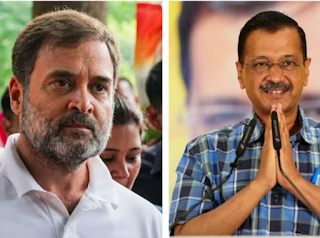The much-anticipated alliance between the Aam Aadmi Party (AAP) and the Congress for the Haryana Assembly elections has hit a significant roadblock, primarily due to unresolved disagreements over seat-sharing arrangements. The AAP, led by Arvind Kejriwal, has expressed dissatisfaction with the seats being offered by the Congress, many of which are located in BJP-dominated areas. Sources indicate that these constituencies have been BJP strongholds for multiple election cycles, with the ruling party winning some of these seats as many as five times consecutively.
Despite extensive negotiations between the two parties, a consensus on seat-sharing has remained elusive. Initially, AAP had demanded 10 seats, hoping for a more substantial presence in the alliance. However, in a bid to demonstrate flexibility and move the discussions forward, AAP reduced its demand to five seats. Even with this concession, Congress was unwilling to cede ground and reportedly offered only three seats. These seats, according to AAP insiders, are in constituencies where the BJP has established an almost unshakable hold, making it extremely difficult for any non-BJP party to contest and win.
Sources close to the negotiations suggest that AAP feels the Congress is being too cautious, unwilling to part with constituencies where it has a stronger electoral base or a better chance of winning. Instead, Congress has been offering seats where AAP would face an uphill battle against entrenched BJP influence. AAP, for its part, is looking for more favorable constituencies where it has a realistic shot at victory, believing that contesting in BJP-dominated areas would be a futile exercise and a waste of resources.
The stalemate has raised concerns about the future of the alliance, as both parties had been expected to form a strong front against the BJP in Haryana. The inability to finalize an agreement on seat-sharing is now threatening the coalition’s effectiveness in the upcoming elections. Political analysts believe that the delay in striking a deal could benefit the BJP, as a fractured opposition would weaken the chances of either party making significant inroads in the state.
For AAP, the stakes are particularly high. Haryana is a crucial state where the party has been attempting to expand its influence beyond its traditional strongholds in Delhi and Punjab. A successful alliance with Congress could have provided the party with a foothold in the state’s political landscape. However, without winnable seats, AAP risks being sidelined in the contest, limiting its impact.
On the other hand, Congress is also facing internal pressures. The party is wary of giving up too many seats, especially in constituencies where it believes it stands a better chance of defeating the BJP. Congress leaders are reportedly concerned that conceding winnable seats to AAP could hurt their electoral prospects in Haryana, especially since the party is trying to regain lost ground in the state after being out of power for nearly a decade.
As the elections draw closer, time is running out for both parties to finalize their alliance and present a united front. The lack of agreement over seat-sharing has put both AAP and Congress in a precarious position, with the risk that a fractured opposition could hand the BJP an easy victory in Haryana. If the two parties fail to resolve their differences soon, the alliance could unravel entirely, significantly weakening their election chances.
For now, the future of the AAP-Congress alliance remains uncertain. Both sides will need to make further concessions if they hope to move forward and challenge the BJP in the state. However, with neither party willing to compromise on key constituencies, it remains to be seen whether a deal can be struck before the election campaign kicks into high gear.



